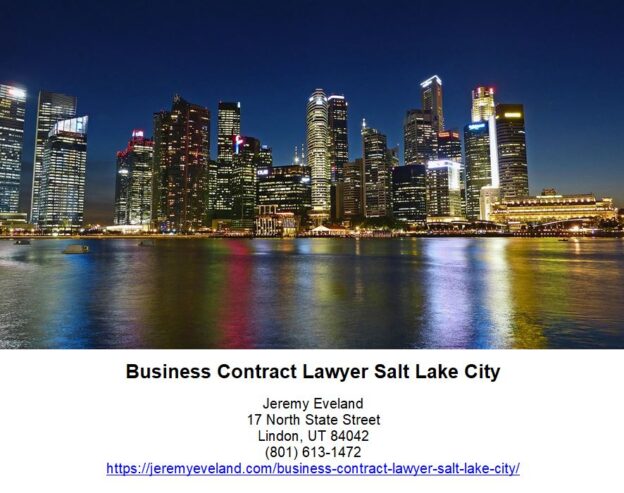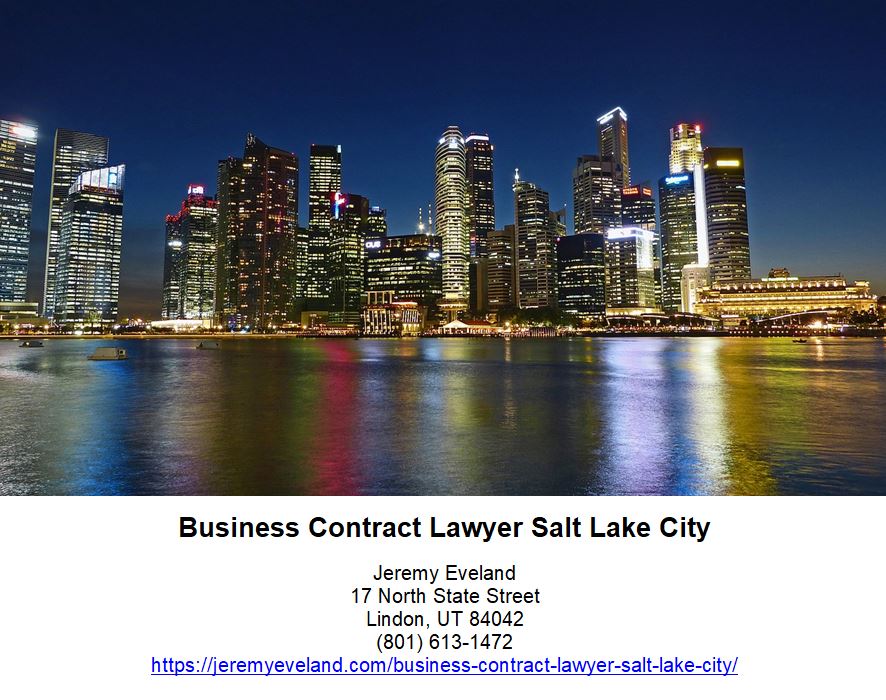Medical Device Company Lawyer
-
Utah Business Attorney
- Introduction
- The Role of Medical Device Lawyers in the Digital Healthcare Revolution
- Exploring the Impact of the Food and Drug Administration Modernization Act of 1997 on Medical Device Companies
- Trademark Strategies for Medical Device Companies
- Navigating the FDA’s Regulatory Requirements for Medical Devices
- Understanding the Regulatory Framework for Medical Device Companies
- Medical Device Business Attorney
- Q&A
“Navigating the Complexities of Medical Device Company Law with Expertise and Precision”
Introduction
Medical device company lawyers are specialized attorneys who provide legal advice and services to medical device companies. They are knowledgeable in the laws and regulations that govern the medical device industry, and they are experienced in helping medical device companies navigate the complex legal landscape. Medical device company lawyers provide a wide range of services, from helping companies obtain FDA approval for their products to providing legal advice on product liability and intellectual property issues. They also help companies develop strategies to protect their products from competitors and ensure compliance with applicable laws. Medical device company lawyers are essential for any medical device company that wants to succeed in the highly competitive medical device industry.
The Role of Medical Device Lawyers in the Digital Healthcare Revolution
The digital healthcare revolution is transforming the way medical care is delivered and managed. As technology advances, medical device lawyers are playing an increasingly important role in ensuring that the legal and regulatory framework keeps pace with the rapid changes in the healthcare industry.
Medical device lawyers are responsible for helping medical device companies navigate the complex legal and regulatory landscape. They provide advice on the development, marketing, and sale of medical devices, as well as on the legal implications of using digital technologies in healthcare. They also help medical device companies understand the implications of new laws and regulations, such as the Food and Drug Administration’s (FDA) Digital Health Software Precertification Program.
Medical device lawyers are also responsible for helping medical device companies comply with the various laws and regulations that govern the healthcare industry. This includes helping companies understand the requirements of the Health Insurance Portability and Accountability Act (HIPAA), the FDA’s Quality System Regulation (QSR), and the European Union’s Medical Device Regulation (MDR). They also help companies understand the implications of the General Data Protection Regulation (GDPR) and other privacy laws.
Medical device lawyers are also responsible for helping medical device companies understand the implications of the various digital health technologies that are being developed and deployed. This includes helping companies understand the implications of artificial intelligence (AI), machine learning, blockchain, and other emerging technologies. They also help companies understand the implications of the various digital health platforms, such as Apple HealthKit, Google Fit, and Microsoft HealthVault.
Finally, medical device lawyers are responsible for helping medical device companies understand the implications of the various digital health initiatives that are being developed and implemented. This includes helping companies understand the implications of the FDA’s Digital Health Software Precertification Program, the Centers for Medicare & Medicaid Services’ (CMS) Quality Payment Program, and the National Institutes of Health’s (NIH) Precision Medicine Initiative.
The digital healthcare revolution is transforming the way medical care is delivered and managed. As technology advances, medical device lawyers are playing an increasingly important role in ensuring that the legal and regulatory framework keeps pace with the rapid changes in the healthcare industry. By providing advice on the development, marketing, and sale of medical devices, as well as on the legal implications of using digital technologies in healthcare, medical device lawyers are helping to ensure that the healthcare industry is able to take full advantage of the opportunities presented by the digital healthcare revolution.
Exploring the Impact of the Food and Drug Administration Modernization Act of 1997 on Medical Device Companies
The Food and Drug Administration Modernization Act of 1997 (FDAMA) was a landmark piece of legislation that had a significant impact on medical device companies. The Act was designed to streamline the approval process for medical devices, reduce the cost of bringing new products to market, and improve the safety and effectiveness of medical devices.
The FDAMA made several changes to the approval process for medical devices. It established a new classification system for medical devices, which allowed for faster approval of certain low-risk devices. It also created a new pre-market approval process for higher-risk devices, which allowed for faster approval of these devices as well. Additionally, the FDAMA allowed for the use of third-party review organizations to review medical devices, which further streamlined the approval process.
The FDAMA also reduced the cost of bringing new products to market. It allowed for the use of clinical data from other countries to support the approval of medical devices, which reduced the cost of clinical trials. Additionally, the FDAMA allowed for the use of “substantial equivalence” to approve certain medical devices, which further reduced the cost of bringing new products to market.
Finally, the FDAMA improved the safety and effectiveness of medical devices. It required medical device companies to provide more detailed information about their products, which allowed for better evaluation of the safety and effectiveness of the devices. Additionally, the FDAMA required medical device companies to provide post-market surveillance data, which allowed for better monitoring of the safety and effectiveness of the devices.
Overall, the FDAMA had a significant impact on medical device companies. It streamlined the approval process, reduced the cost of bringing new products to market, and improved the safety and effectiveness of medical devices. As a result, the FDAMA has been a major factor in the success of the medical device industry.
Trademark Strategies for Medical Device Companies
1. Develop a Unique Brand Identity: A strong brand identity is essential for medical device companies to stand out in a competitive market. Developing a unique brand identity involves creating a logo, slogan, and other visual elements that will help customers recognize and remember your company.
2. Protect Your Trademarks: It is important to protect your trademarks by registering them with the United States Patent and Trademark Office (USPTO). This will help ensure that your trademarks are legally protected and that no one else can use them without your permission.
3. Monitor Your Trademarks: Once you have registered your trademarks, it is important to monitor them to ensure that no one is using them without your permission. You can do this by conducting regular searches on the USPTO website and other search engines.
4. Use Your Trademarks Properly: It is important to use your trademarks properly in order to maintain their legal protection. This means using them in the correct manner and in the correct context.
5. Take Action Against Infringement: If you find that someone is using your trademarks without your permission, it is important to take action. This could involve sending a cease and desist letter or filing a lawsuit.
By following these trademark strategies, medical device companies can ensure that their trademarks are legally protected and that they are used properly. This will help them to stand out in a competitive market and protect their brand identity.
Navigating the FDA’s Regulatory Requirements for Medical Devices
The U.S. Food and Drug Administration (FDA) is responsible for regulating medical devices in the United States. The FDA’s regulatory requirements for medical devices are complex and can be difficult to navigate. This article provides an overview of the FDA’s regulatory requirements for medical devices and offers tips for navigating the process.
The FDA’s regulatory requirements for medical devices are based on the type of device and its intended use. Generally, medical devices are classified into one of three categories: Class I, Class II, and Class III. Class I devices are considered low-risk and require the least amount of regulatory oversight. Class II devices are considered moderate-risk and require more oversight than Class I devices. Class III devices are considered high-risk and require the most oversight.
The FDA requires manufacturers of medical devices to submit a premarket notification, or 510(k), to the agency prior to marketing the device. The 510(k) must include information about the device’s design, performance, and safety. The FDA will review the 510(k) and determine whether the device is safe and effective for its intended use.
In addition to the 510(k), the FDA may require manufacturers to submit additional information, such as clinical data, to support the safety and effectiveness of the device. The FDA may also require manufacturers to conduct post-market surveillance to monitor the device’s performance and safety.
Navigating the FDA’s regulatory requirements for medical devices can be a complex and time-consuming process. Manufacturers should consult with experienced professionals, such as regulatory consultants, to ensure that they are in compliance with the FDA’s requirements. Additionally, manufacturers should stay up-to-date on the latest FDA regulations and guidance documents to ensure that their devices meet the agency’s standards.
Understanding the Regulatory Framework for Medical Device Companies
The regulatory framework for medical device companies is complex and ever-evolving. It is important for medical device companies to understand the regulations that govern their industry in order to ensure compliance and protect their products from potential risks.
The U.S. Food and Drug Administration (FDA) is the primary regulatory body for medical device companies. The FDA is responsible for ensuring the safety and effectiveness of medical devices. The FDA has established a comprehensive set of regulations that medical device companies must adhere to in order to market their products. These regulations include premarket approval, postmarket surveillance, and labeling requirements.
The FDA’s premarket approval process requires medical device companies to submit a detailed application that includes information about the device’s design, manufacturing, and safety. The FDA reviews the application and determines whether the device is safe and effective for its intended use. If the device is approved, the FDA will issue a premarket approval (PMA) that allows the device to be marketed in the United States.
The FDA also requires medical device companies to conduct postmarket surveillance of their products. This includes collecting data on the performance of the device, monitoring adverse events, and conducting periodic reviews of the device’s safety and effectiveness.
Finally, the FDA requires medical device companies to provide accurate and up-to-date labeling information on their products. This includes information about the device’s intended use, warnings, and instructions for use.
Medical device companies must also comply with other regulations, such as those from the International Organization for Standardization (ISO) and the European Union (EU). These regulations are designed to ensure the safety and effectiveness of medical devices and protect consumers from potential risks.
Understanding the regulatory framework for medical device companies is essential for ensuring compliance and protecting the safety of consumers. By adhering to the regulations set forth by the FDA, ISO, and EU, medical device companies can ensure that their products are safe and effective for their intended use.
Medical Device Business Attorney
As a medical device business attorney, I provide legal advice and representation to medical device companies. My services include helping clients with the formation of their business, drafting and negotiating contracts, protecting intellectual property, and providing guidance on regulatory compliance.
I understand the complexities of the medical device industry and the unique legal issues that arise in this field. I have extensive experience in the areas of product liability, FDA compliance, and reimbursement. I also have a deep understanding of the laws and regulations that govern the medical device industry.
I provide comprehensive legal services to medical device companies, from start-ups to established businesses. I can help clients with the formation of their business, including the selection of the appropriate business entity and the preparation of the necessary documents. I can also assist with the negotiation and drafting of contracts, such as licensing agreements, distribution agreements, and manufacturing agreements.
I can also help clients protect their intellectual property, such as patents, trademarks, and copyrights. I can provide guidance on regulatory compliance, including FDA regulations, HIPAA, and other applicable laws. I can also advise clients on product liability issues, reimbursement issues, and other legal matters.
I strive to provide my clients with the highest quality legal services. I am committed to helping my clients achieve their business goals in a timely and cost-effective manner. I am dedicated to providing personalized service and tailored solutions to meet the needs of each individual client.
Q&A
1. What is the role of a medical device company lawyer?
A medical device company lawyer is responsible for providing legal advice and guidance to the company on matters related to the development, manufacture, and sale of medical devices. This includes advising on regulatory compliance, intellectual property protection, contract negotiations, and other legal matters.
2. What qualifications should a medical device company lawyer have?
A medical device company lawyer should have a Juris Doctor (JD) degree from an accredited law school and be licensed to practice law in the state where the company is located. In addition, the lawyer should have experience in the medical device industry, including knowledge of relevant laws and regulations.
3. What types of legal services does a medical device company lawyer provide?
A medical device company lawyer can provide a variety of legal services, including advising on regulatory compliance, intellectual property protection, contract negotiations, and other legal matters. The lawyer can also provide advice on product liability, FDA approval, and other legal issues related to the medical device industry.
4. What is the difference between a medical device company lawyer and a patent attorney?
A medical device company lawyer provides legal advice and guidance to the company on matters related to the development, manufacture, and sale of medical devices. A patent attorney specializes in intellectual property law and can provide advice on patent applications, patent infringement, and other related matters.
5. What is the cost of hiring a medical device company lawyer?
The cost of hiring a medical device company lawyer will vary depending on the complexity of the legal services required and the lawyer’s experience and expertise. Generally, lawyers charge an hourly rate for their services.
6. What should I look for when hiring a medical device company lawyer?
When hiring a medical device company lawyer, you should look for someone with experience in the medical device industry and knowledge of relevant laws and regulations. You should also consider the lawyer’s reputation and experience in the field, as well as their fees and availability.
Medical Device Company Lawyer Consultation
When you need legal help with a Medical Device Company call Jeremy D. Eveland, MBA, JD (801) 613-1472 for a consultation.
Jeremy Eveland
17 North State Street
Lindon UT 84042
(801) 613-1472
Related Posts
What Is The Purpose Of A Business Attorney?
Business Transaction Lawyer Provo Utah
Trusted Personal Injury Attorneys in Utah
Legal Requirements to Start a Business
Real Estate Attorneys in Salt Lake City Utah
Business Contract Lawyer Riverton UT
Business Law and Intellectual Property
Commercial Litigation Strategies


















